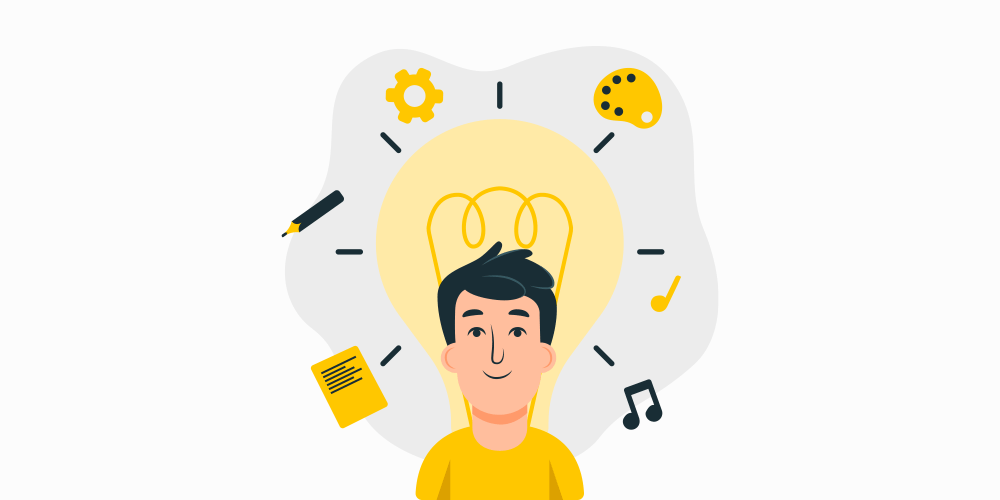
Have you ever asked yourself why some learners are easily distinguished in a classroom, not by just their grades but as well as in their dress code, their posture, and their attitude towards matters in life?
This is the area where personality development plays its role.
It is necessary to emphasise that all information which was received in schools or universities does not play an active role in the formation of behaviour, expectations, and relations with other people.
Therefore, one has to ask what we understand by ‘personality development’ and why it is important for students.
Now, in this blog, we will talk about the importance of personality development and provide 10 practical tips by which students can develop personalities.
Contents
What is Personality Development?
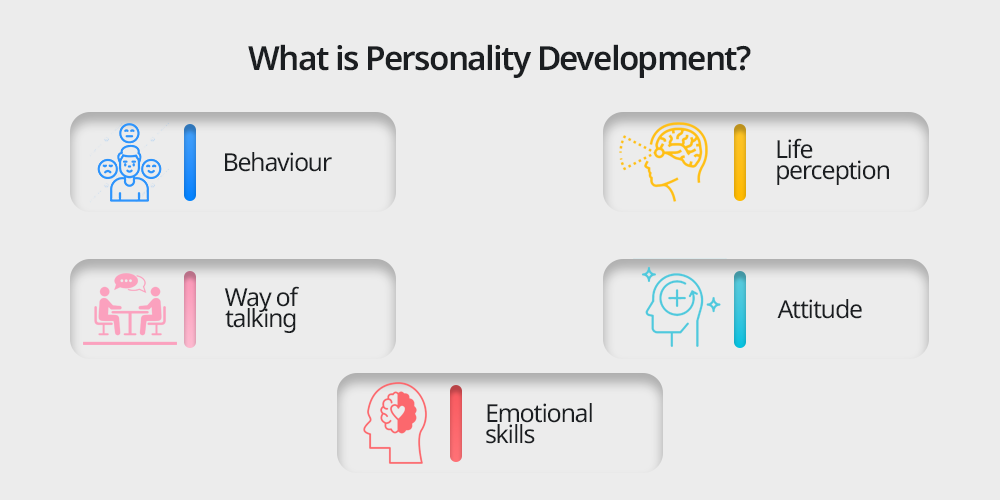
Personality development includes things such as behaviour, way of talking, life perception, attitude, and emotional skills, all of which contribute to personal growth.
It is defined as the process of enhancing some qualities that are both innovative and relational and affect mechanical and organic impressions and how people treat you.
Therefore, personality development for students means something broader than the physical aspect of walking, talking, or dressing well though these faculties are well exercised in this regard, it should be a noble social competence that shapes a student’s life and career.
How Does Personality Development Benefit Students?
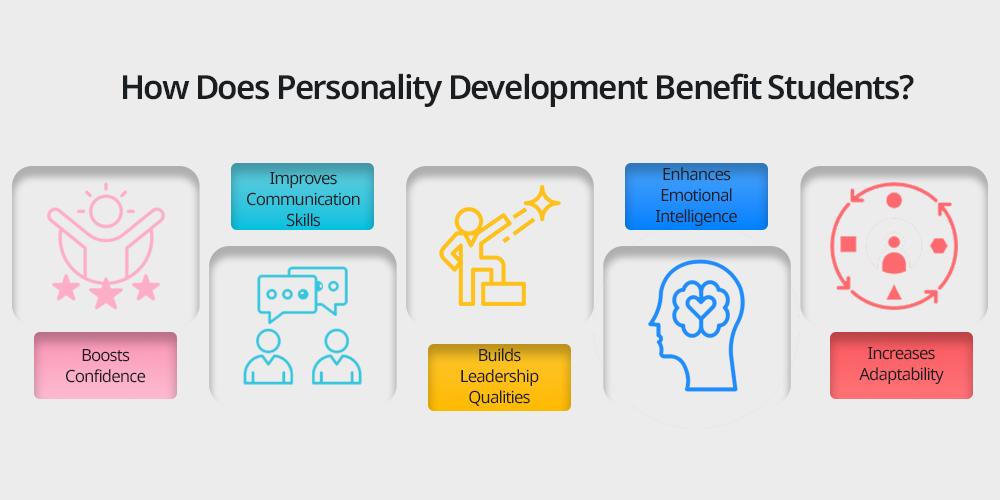
Indeed, personality development is among the most relevant values that can influence students’ effectiveness along with numerous characteristics of academic achievement.
Here’s why:
- Boosts Confidence: It enables a student to be confident
of his ability to handle problems that are coming across him.
- Improves Communication Skills: This category helps in the enhancement of correct interpersonal communication skills, an aspect that is vital in learning, as well as social life.
- Builds Leadership Qualities: Leadership abilities are taught to those students who have well–developed personalities, and the knowledge of leadership and ways of leadership is gained by them.
Also read How to Develop Leadership Skills in Students to learn more about leadership qualities. - Enhances Emotional Intelligence: Personality development allows students to understand and manage their emotions, fostering better relationships.
- Increases Adaptability: They also make the students to be more vulnerable and easily manageable as well as flexible, these being realities of life.
10 Personality Development Tips for Students
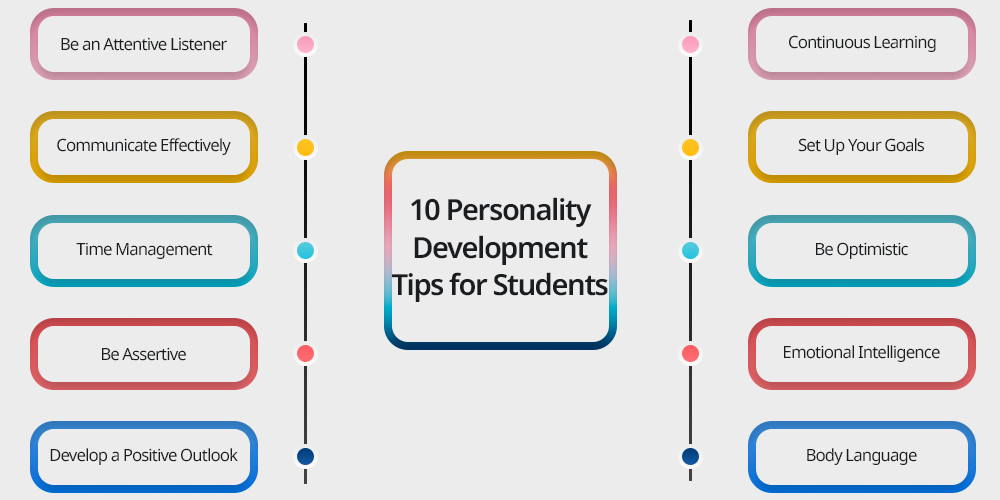
1. Be an Attentive Listener
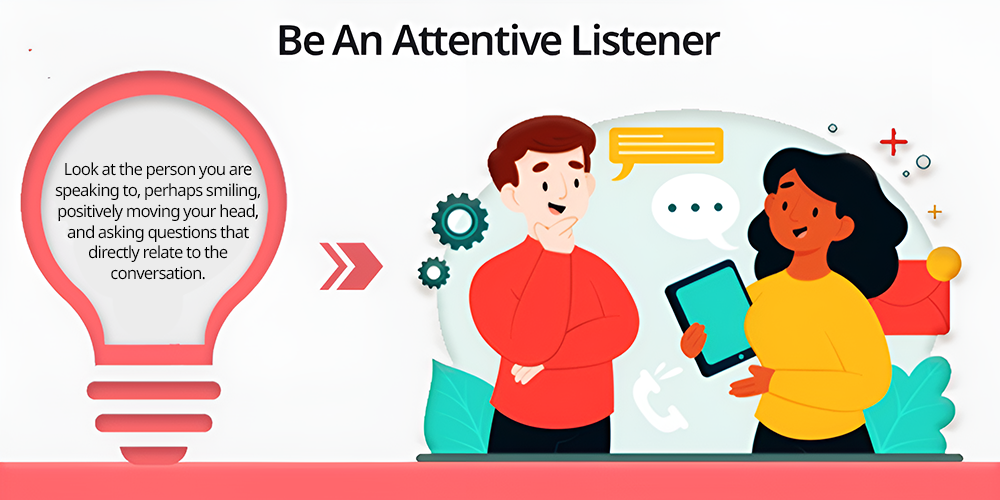
Listening skills are a part of people’s lives and constitute one of the most important skills, although it gets very little consideration.
An attentive listener can listen to everything important more effectively while on the other hand developing better relationships through interacting with other peers and teachers.
It is not only concerned with words but a message which helps in responding intelligently.
- Tip: Execute this by ensuring you look at the person you are speaking to, perhaps smiling, positively moving your head, and asking questions that directly relate to the conversation.
2. Communicate Effectively
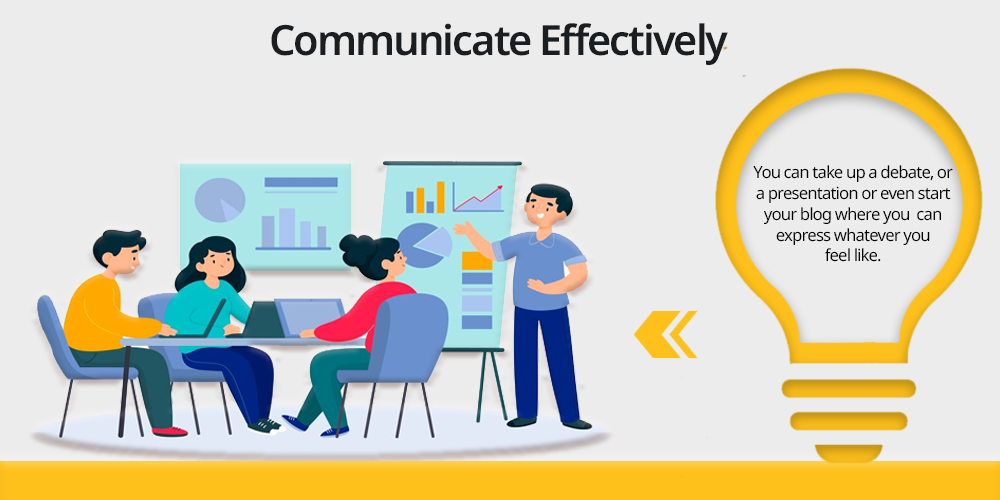
A majority of people rely on communication to foster good interpersonal relations and for passing information.
In the case of students, this is a way of speaking confidently in a class, going ahead and speaking one’s mind without having to think twice about what to say or how to say it.
- Tip: You can take up a debate, or a presentation or even start your blog where you do not have to hold yourself much and can express whatever you feel like.
3. Time Management

The most vital of all the life skills, that any learner should be in a position to master, is How to improve time management .
Thus, depending on this way, students might be able to reduce their problems by prioritising the tasks; avoid cramming, and even be able to incorporate breaks.
- Tip: Create a daily or weekly schedule that includes study time, breaks, and relaxation. Use apps or planners to keep track of assignments and deadlines.
4. Be Assertive
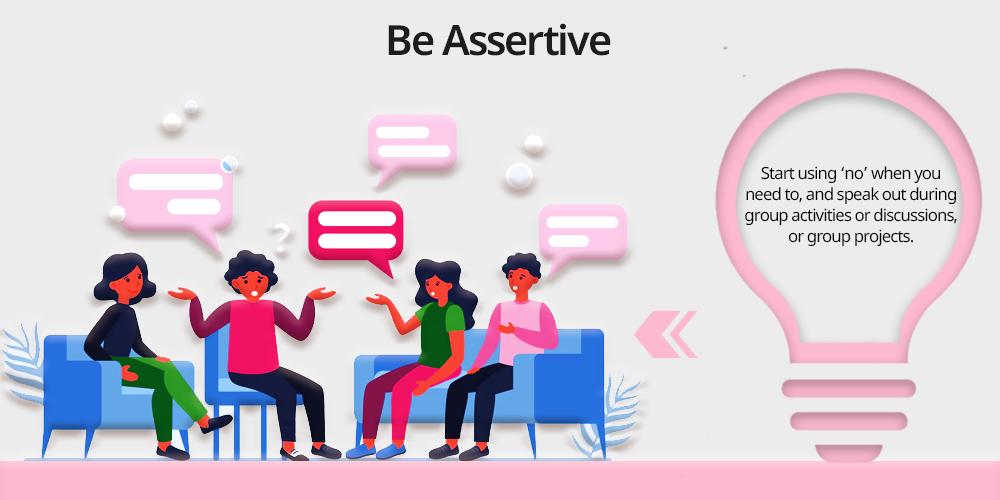
Assertiveness is the act of claiming or promoting one’s agenda in a way that makes it possible for the person to get what he or she wants while not hurting any other person.
More so for the learners, assertiveness helps them to deal with pressure from other students, manage interpersonal relationships, and assertively respond without being aggressive.
- Tip: Start using ‘no’ when you need to, and speak out during group activities or discussions, or group projects.
5. Develop a Positive Outlook
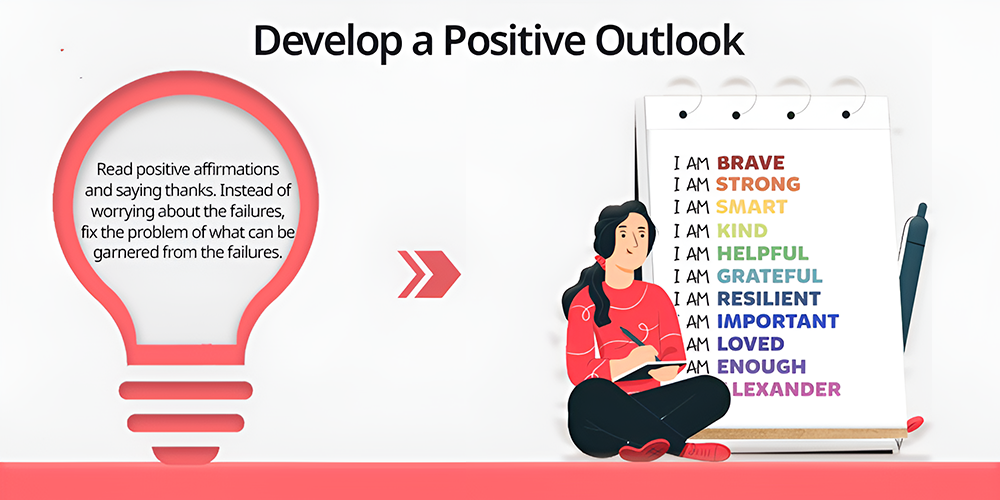
The first and most important category that leads to opening the door to success is attitude. Look at the positive impacts of life events.
Being positive improves one’s psychological state physically and mentally, working ability, and improves on their ability to reason as compared to a pessimist.
- Tip: Some of the tips that we use for self-reflection are in the morning reading positive affirmations and saying thanks. Instead of worrying about the failures, fix the problem of what can be garnered from the failures.
6. Continuous Learning
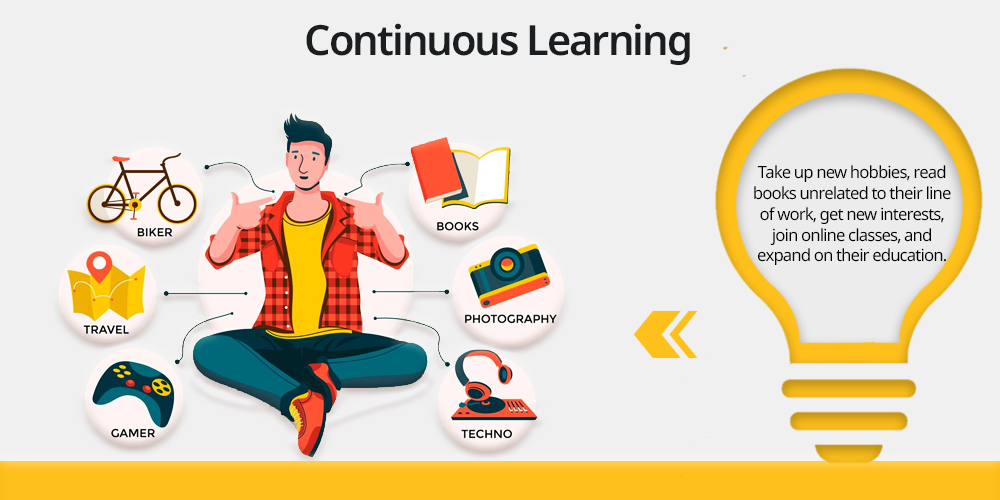
Students not only are taught within school hours. In learning, the student should have the attitude of lifelong learning not only in schools about academic subjects but also they can learn in their interest.
By doing so, they become more flexible, curious, and knowledgeable persons.
- Tip: Take up new hobbies, read books unrelated to their line of work, get new interests, join online classes, and expand on their education.
Read 7 Ways to Promote Lifelong Learning in Your Students to understand the ways to make this your habits.
7. Set Up Your Goals
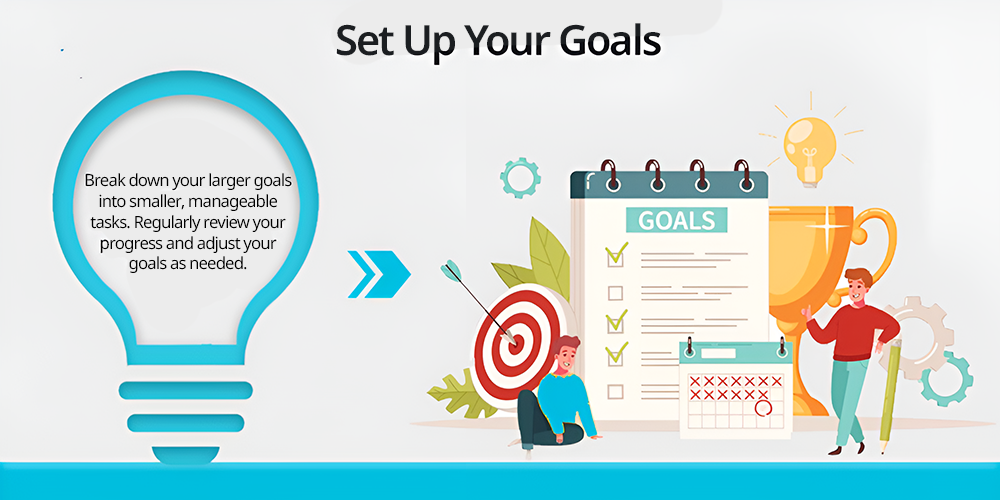
In this context, it is clear that the act of setting goals has therefore been listed among the best that can be used in personality improvement.
Their goals are oriented, specific, and realistic; therefore students who have set their goals will work hard, will be more motivated, and likely to perform as they have planned.
It gives directions and this is a tool whereby one may be in a position to decide on the correct thing to do in any given career or academic activity.
- Tip: Break down your larger goals into smaller, manageable tasks. Regularly review your progress and adjust your goals as needed.
8. Be Optimistic
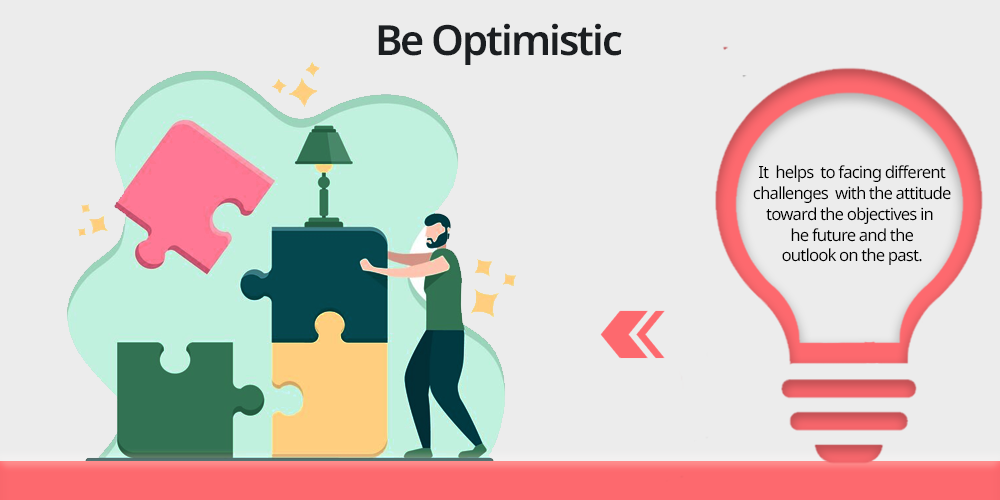
It shall thus be said that optimism is that the vice via which people can fully live life without ever considering the worst of it.
Optimism is the attitude that one can do something and things will be well no matter what.
It also helps the students in motivating each other especially if that particular part seems a little hard then they end up being the winners, all pride!
- Tip: It also helps when it comes to facing different challenges present on the way, together with the attitude toward the objectives in the future and the outlook on the past.
9. Emotional Intelligence

It entails perception of feelings and control of inner emotions; skill or competence of the person to comprehend the feelings of others.
Scholars also find that when students have high emotional intelligence, they are successful in moderating their stress, social relationships, and management of conflicts.
However, it is important to note that EI is a critical part of personality development, and that improves the enhancement of academic performance and interpersonal relationships.
- Tip: Ideally, everyone should spend some time each day thinking about why they feel a certain way as well as attempting to think about how others may also feel.
10. Body Language
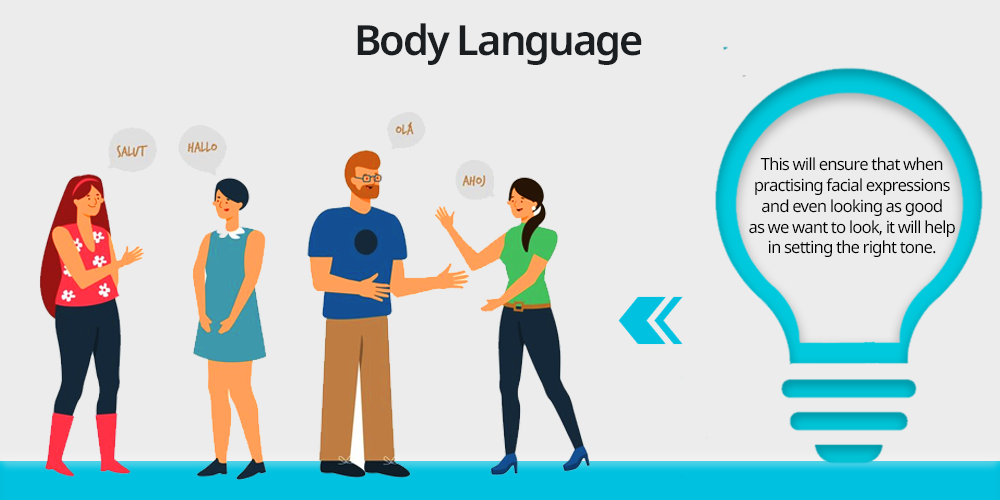
For several times, there is what people convey through their non-verbal cues as to what they say they are going through.
There are things like the position of the body, the distance that is between you and the other person, eye contact, and things like that which assist in judging the kind of attitude that the people have towards you.
Observing appropriate types of nonverbal communication may contribute to the development of the student in the aspects of voice use, and personal esteem, as well as creating the first impressions where needed.
- Tip: It is advisable to ensure that one’s posture is good. This will ensure that when practising facial expressions and even looking as good as we want to look, it will help in setting the right tone.
Personality Development Case Studies
Personality development includes overall development in terms of communication, understanding, emotions, intelligence, etc. A positive mindset helps in developing a positive personality.
There are various case studies which show how they have developed their personality and changed their behaviour. The following are the case studies of personality development.
1. Case Study of Ramanna Chidambaram
Ramanna Chindanbaram was born in poverty and lives in Madras. During childhood, he was a very silent boy, who found it tough to express his thoughts, knowledge and ideas.
Even in school, many students bullied him and made fun of him, which reduced his confidence and ability to communicate with others.
However, he was very creative and had a passion for poetry. He was once asked to participate in an intercollege cultural festival and read his poem. He was hesitant at first, but after his friends encouraged him, he finally agreed.
However, he faced stage fright for the first time, due to which he came under pressure. One day, he asked his college professor about his problem and asked for a strategy to overcome it.
The professor then suggested that he employ mirror reflection therapy. The simple answer is that learning occurs more rapidly when every action is considered.
Seeing one’s own shortcomings by standing in front of a mirror and loudly expressing one’s thoughts or content will boost one’s confidence in general. This method helps in developing a new personality and boosts confidence and his behaviours.
2. Case Study of Aahan Dasgupta: How 21K School Helped Him
21K school helps in enhancing the personality of students by encouraging them to enhance their potential. Ahan Dasgupta is a bright student who has a passion for cricket, but an incident has changed his entire personality.
Aahan Dasgupta met with an accident which changed his entire dream and personality. The tragic accident caused him to fracture his femur bone, due to which he was unable to attend his classes and caused him to develop social anxiety.
However, 21K school helps in encouraging him through proper guidance and providing them with online education, which helps him to build confidence and attention.
The flexibility of online education helps Aahan to overcome his obstacles and allows him to balance both his passion and education.
3. Case Study of Aarav Arora: How 21K School Helped Him
Aarav Arora is a bright student; however, he has difficulty with communication skills. Due to improper communication, Aarav Arora finds it difficult to engage with others and share his ideas or thoughts effectively.
Even the long hours of a traditional classroom make it difficult for him to enhance his confidence and ability to clear his doubts. However, 21K school helps him in overcoming his problem by providing him with personalised learning.
Through customisation of learning, Aarav has gained confidence, which enhances his communication skills and ability to express his thoughts and ideas.
Statistics for Personality Development
The statistic of personal development helps in understanding how small steps help in enhancing the personality of students.
Through enhanced personality, many students perform better in their academics as well as in their career goals.
1. Good Interview Performance
As per the report of LinkedIn, more than 78% of students who received training in soft skills said they performed better in job interviews through enhanced personality, which highlights their significance in the hiring process.
2. Increase in Employability
According to the research conducted by WiseWorld, students who have changed their personality to soft skills are more likely to achieve jobs. More than 85% of students who have soft skills get jobs quickly as compared to non-skilled candidates.
3. Communication Skills
A report presented by Business Standard says that students who have better communication skills are more likely to get hired by their employers.
A proper communication skill is very essential for effective understanding and expressing viewpoints. As per the report, 80% of candidates with communication skills have high chances of getting employment.
4. Collaborative Skills
Collaboration skills are very beneficial for effective teamwork. Research conducted by the World Economic Forum states that 75% of individuals who have collaboration skills are more likely to get hired by companies. As most companies require teamwork and collaboration skills are vital for teamwork.
Experts’ Insights on Personality Development
According to experts and child psychologist small steps towards children’s are very essential for developing personality. A proper relationship, attachment, and warm feelings It necessary for effective overall growth.
At an early age children are very sensitive, in such age understanding them and interacting with them in a positive manner is essential for effectiveness.
1. Parent-Child Relationship
Parent child relationships are the first step towards the personality development of kids. Kids at an early age develop a strong emotional attachment towards their parents.
An infant’s attachment is strengthened and they feel more confident that their parents will be there for them in times of need when they see their parents responding to them with empathy.
Sense of attachment is an essential component of social and personality development because it has been shown that securely attached infants and young children have more positive self-concepts, more advanced emotional understanding, early conscience development and stronger peer friendships as compared to insecurely attached children.
2. Peer Relationship
Peer relationship is another factor that plays an essential role in a child’s personality development.
Many social skills that are useful throughout life are developed through social interaction with a child who is similar to age, ability and knowledge.
Through peer relations, children can indulge in social comparison which is essential for evaluating performance.
The social and emotional skills required for peer relationships are very different from those required for parent-child relationships.
Peer relationships at an early childhood help in developing personality among them which will be beneficial throughout the year.
3. Social Setting or Nature
According to Psychologists, personality development is biologically natural, which emphasizes strong emotional attachment.
At this age, children develop social bonding and emotional attachment to any object, such as pets, birds, non living objects and so on.
Even though almost all children form an emotional bond with their parents, and school-age children, through which they are better able to express their preferences.
However, when children reach adolescence, a coregulation agreement develops between parents and children.
Conclusion
Personality development is a lifelong journey; however, being able to maintain a strong foundation from the foundation age is well beneficial to the students.
When choosing the required qualities from the list, the students can improve in terms of studying and other skills like communication, time management, interpersonal, and emotional skills, and positive attitude.
Personality change cannot be viewed as the process by which one erases his/her personality; rather, it is the process of developing an improved personality.
In practice, it usually means making some small efforts day by day, and keeping up regularity, the gains coming afterwards.
So, are you ready to embark on your personality development journey? Start implementing these tips today and watch as you grow into a more confident, well-rounded individual.
